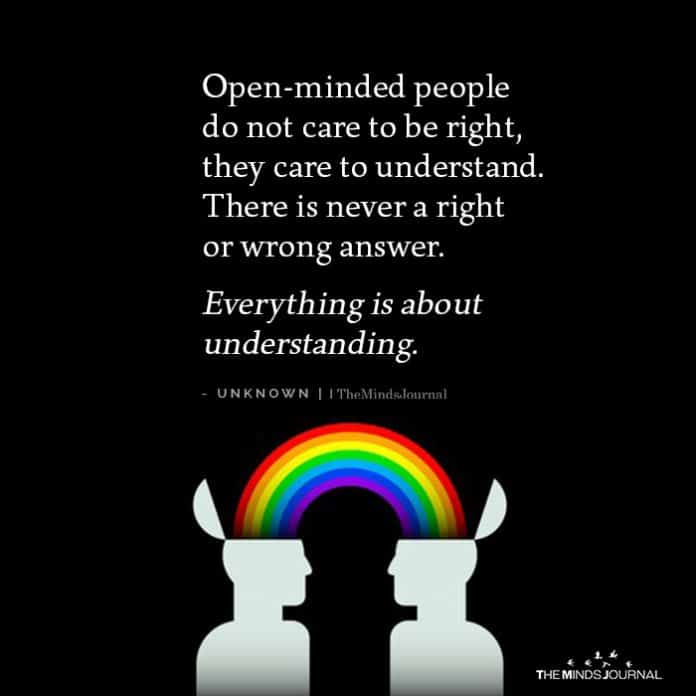When it comes to human beings, every person’s mind is different from the other, and this leads to the spectrum of 3 different types of minds.
The human mind is a remarkable thing to behold, and to speak of it and think about it, can sometimes seem like a metaphysical and intellectual concept. A human mind is a hub of multifaceted processes, such as perception, consciousness, thoughts, sensations, feelings, desires, and intellect. A mind is a powerful place that decides how you will function and has the capacity of even deciding how your life is going to turn out.
The mind works on the basis of all the experiences that you have had in your life and helps steer you in the most desirable direction. Whatever happens in your mind is never random, rather it is a structured system of thoughts, patterns, and plans that you have acquired throughout your life. However, don’t be under the impression that all these things make the human mind immutable; in fact, the human mind is extremely dynamic in nature.
Many scholars and experts believe that there are three types of human minds, and each of them boasts of different qualities, logic, and characteristics.
The 3 Types Of Minds Proposed By Scholars And Experts
1. Fluid Minds (Adaptable, and casual approach)
People with fluid minds tend to be inconsistent by nature and generally believe in the motto of “go with the flow.”. They have trouble being in control of themselves, and normally need a lot of guidance and direction from other people. People having fluid minds struggle with feelings of uncertainty, and require a considerable amount of hand-holding.
Fluid-minded people tend to find it difficult to take initiative and make decisions all by themselves, and that is why they end up delegating their tasks to other people who they feel are more able and responsible. Due to the lack of determination, they fail at setting goals, and most of the time, they end up giving up midway.
On the flip side, they would prefer other people to set their goals for them, and push them further to fulfilling those goals. In order words, they are good as subordinates, but never as leaders.
People with fluid minds tend to be more relaxed, and nonchalant, and don’t always focus on doing everything perfectly. They rely on their spontaneity when it comes to life experiences and life lessons. Such people are not obsessed with controlling everything, and always choose to take one day at a time, instead of always following a strict plan.
Related: Understanding Type A Personality And Type B Personality
2. Rigid Minds (Resisting new ideas, and changes)
The exact opposite of a fluid mind is a rigid mind. This is one of those types of minds that is characterized by a complete lack of uncertainty, and a strong need for control. People with rigid minds tend to have rigid parents, and this rigidity that they exhibit is sometimes a form of defense mechanism.
When you focus on firm ideas, and always look for stability over everything, it gives you a certain sense of control, and shields you from unpredictability. That is why, people with rigid minds are perfect for jobs that involve a lot of discipline, and rules.
On the flip side, their discipline and rigidity can make them come across as superficial. Due to their rigid minds, they never loosen up, and stop, and smell the flowers. They will always prefer to do everything in an orderly manner, and will always choose to follow rules, no matter what.
People with rigid minds have a tough time getting out of their comfort zone and show no signs of creativity. This makes them do the same thing over and over again, thus leading to a lot of boredom. They hate giving up control and feel extremely uncomfortable when they don’t get to hold the reins, which leads to a lot of suffering.
3. Flexible Minds (Balanced, and open-minded)
People with flexible minds are adaptable and are easy-going, but at the same time they are not like fluid-minded people, i.e. they do not accept anything and everything that is thrown at them. Their nature and thinking are more creative, and smarter. Actually, they fall in the dead center of the spectrum; they are malleable, adjustable, and never force their opinions on others, but at the same time, they refuse to behave like a doormat.
Flexible-minded people, like the name suggests, are very flexible and open-minded. They do not abide by a strict code of conduct, nor do they just go along with everything mindlessly. You can talk to them about anything you want without feeling judged, as even if they disagree with you, they will never make you feel inferior to them. They are always open to new ideas, and diverse opinions, and never believe that only what they think is right.

All these qualities make them humble, and friendly people who you can get along with very well, without any complications. Their positive and inspiring nature always makes people feel comfortable and secure in their presence.
Related: The 4 Types Of Intuitive Thinking
No human being has just one of these types of minds; every person has a little of this, and a little of that, even though some prominent features might be of one specific type of mind. Every human being’s thought process is different, and it is always interesting to know the different types of minds and thinking, so that it gets easier to be happy, and understand yourself better.











Leave a Reply